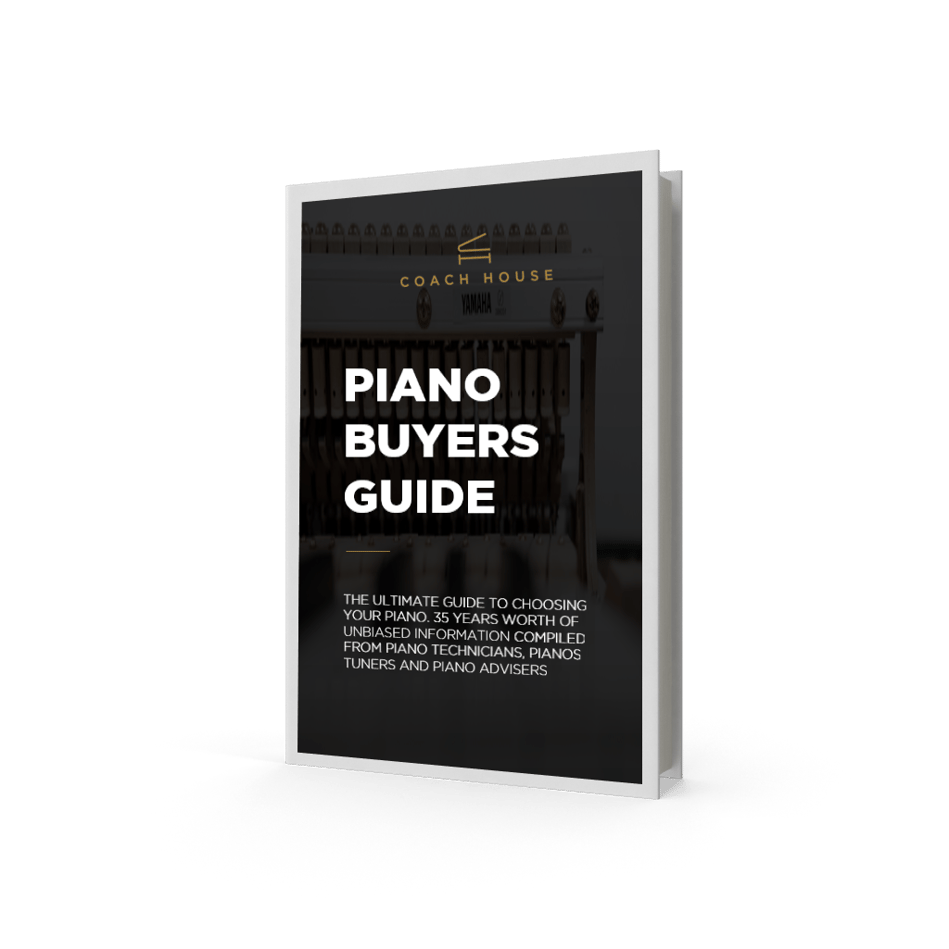A Brief History of the World's Finest Piano...
Steinway & Sons was founded in 1853 by German immigrant Henry Engelhard Steinway in a Manhattan loft on Varick Street. Henry was a master cabinet maker who built his first piano in the kitchen of his Seesen, Germany home. By the time Henry established Steinway & Sons, he had built 482 pianos. The first piano produced by the company, number 483, was sold to a New York family for $500.
Over the next thirty years, Henry and his sons, C. F. Theodore, Charles, Henry Jr., William, and Albert, developed the modern piano. Almost half of the company's 127 patented inventions were developed during this period. Many of these late nineteenth-century inventions were based on emerging scientific research, including the acoustical theories of the renowned physicist Hermann von Helmholtz. Steinway's revolutionary designs and superior workmanship began receiving national recognition almost immediately. Starting in 1855, Steinway pianos received gold medals at several U.S. and European exhibitions. The company gained international recognition in 1867 at the Paris Exhibition when it was awarded the prestigious "Grand Gold Medal of Honor" for excellence in manufacturing and engineering. It was the first time an American company had received this award. Steinway pianos quickly became the piano of choice for many members of royalty and won the respect and admiration of the world's great pianists.
 Steinway Village, NEW YORK (1866)
Steinway Village, NEW YORK (1866)
In 1866 Steinway & Sons opened the first Steinway Hall on 14th Street. With a main auditorium of 2,000 seats, it became New York City's artistic and cultural center, housing the New York Philharmonic until Carnegie Hall opened in 1891. By this time, the company had moved to its current location in the Astoria section of Queens, New York, and built Steinway Village. Virtually its own town, Steinway Village had its own foundries, factory, post office, parks and housing for employees.
In 1871, Henry Sr. died and sons C. F. Theodore and William assumed management of the operations. C. F. Theodore, an accomplished pianist, was responsible for the technical aspects of piano making and personally earned the company 45 patents, including one in 1875 for the modern concert grand piano. In the same year, William helped establish a showroom in London.
As the reputation and recognition of Steinway & Sons spread, there emerged a need to supply concert halls, universities and discriminating purchasers throughout the world. In order to satisfy this demand, C. F. Theodore Steinway expanded upon his father's legacy, opening the Hamburg production facility. Founded in 1880, the Hamburg factory remains the company's only manufacturing facility outside of New York, where it has continued – and enhanced – the legacy of Henry E. Steinway.
Steinway & Sons continues to handcraft its pianos only at its Astoria, (New York) and Hamburg, (Germany) factories using many of the same techniques developed by the Steinway family.
Today, both Steinway factories employ the innovative designs, attention to detail, and craftsmanship which have established the Steinway piano as the world's finest. Through our factories in Hamburg and New York, as well as our subsidiaries in Berlin, London, Tokyo, and Shanghai, customers throughout the world can experience a Steinway piano firsthand. Steinway & Sons crafts approximately 2,500 pianos a year worldwide. In an age where many piano manufacturers have outsourced the building of their pianos to areas with cheaper labor, Steinway & Sons continues to handcraft its pianos only at its Astoria, (New York) and Hamburg, (Germany) factories using many of the same techniques developed by the Steinway family.
Steinway & Sons reveres its own history — and the patents and methods that were painstakingly developed over the course of more than a century and a half. The result is, quite simply, the world's finest piano. Over 1,500 prominent concert artists and ensembles across the world bear the title Steinway Artist. No artist or ensemble is a paid endorser of the piano. Each Steinway Artist personally owns a Steinway and has chosen to perform on the Steinway piano professionally. Steinway remains the choice of 9 out of 10 concert artists, and it is the preferred piano of countless musicians, professional and amateur, throughout the world.







